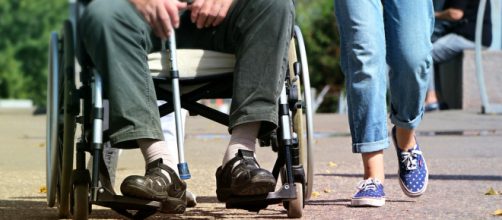While films about people with disabilities are becoming increasingly popular on our screens, very few of them feature any disabled actors, reaffirming that disabled people continue to be the least represented minority group within the acting industry, both as actors and characters.
Hollywood producers have long been accused of using stories about disabled people to ring up awards without giving any consideration or contribution to the disabled community and it is high time this changed.
Representation has become a buzzword which has been at the forefront of showbiz recently and while cultural appropriation and whitewashing have only been terms coined relatively recently, the likes of blackface have long been established as derogatory and racist.
So why do we not consider that disabled people are being represented in a similarly derogatory and discriminatory way?
How is the disabled community portrayed?
In America, the disabled community is the largest minority group, comprising 20% of the population, yet only 1.7% of TV characters are visibly disabled and out of that, 95% are played by non-disabled actors, according to a 37-page report released by the disability rights organisation, Ruderman Family Foundation in July 2016.
Another report entitled "Inequality in 800 Popular Films," released by the University of Southern California's Annenberg School for Communication and Journalism also found that there were just 2.4% of characters in the top 100 films who had speaking roles or were identified by name were disabled.
The overwhelming majority of disabled characters were either in supporting (54.3%) or inconsequential roles (32.4%) and generally tend to be defined by their disability.
How should disabled people be represented instead?
Instead what we should have is a genuine and authentic balance of dignifying and normalising disabled representation. Yes, the actualities of having a disability should be displayed however this should not be the only purpose of a disabled character, they should have the same depth of character as their counterparts and not just exist to tick off a box.
Why is the community so under-represented?
The industry is also victim to widespread ableism and unequal access to opportunities with the majority of disabled actors in the television industry working for less than a year as a result of these barriers, often by to casting agents and producers.
This may be because they are mainly made by non-disabled creators who don't necessarily have the community in mind when creating their project.
Of course, as the Ruderman Family Foundation says, it is not possible to have every single character with a disability be played by an actor with a disability as they are sometimes simply too rare to find actors for but it is important that production teams audition actors with disabilities for a wide variety of roles whether or not disability is specified in the script.
How else do we increase representation?
In addition to raising the number of disabled people in front of the camera, we also need to have disabled individuals in positions of power behind the camera to ensure we start challenging the stereotypes and tired tropes that do little to serve the community they are meant to be reflective of.
If we do not do this, we are stopping the right to self-representation and "perpetuating the myth that actors with disabilities are not even good enough to portray themselves."
A disability is not a costume for non-disabled actors to put on and flaunt; people with disabilities are evidently not incapable of playing a variety of roles and to ignore this potential would be to make a mimicry of disabled rights.


